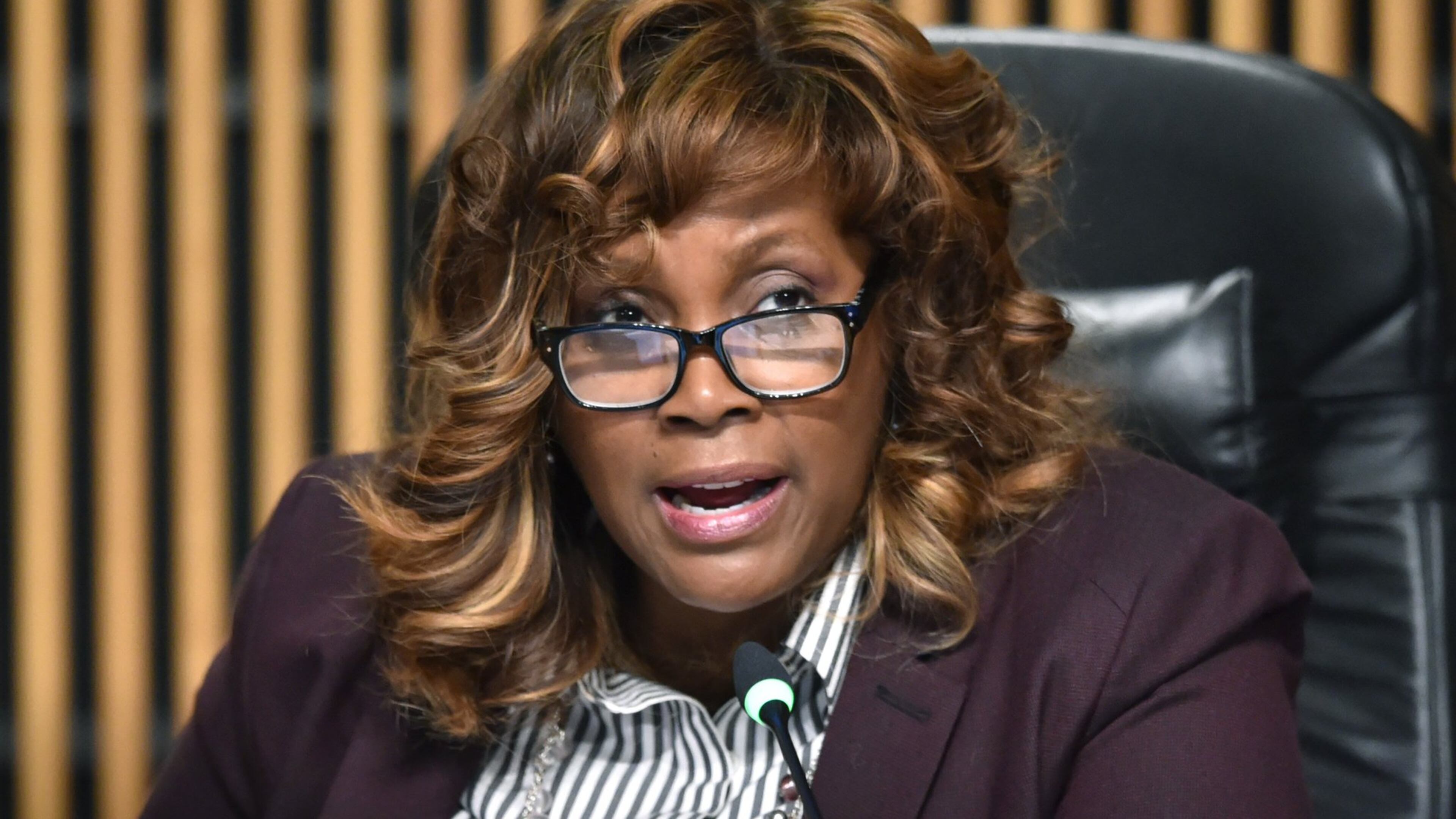Gwinnett ethics panel recommends commissioner receive written warning

The Gwinnett County ethics board delivered a split decision in the case of Commissioner Marlene Fosque, sustaining two of six allegations brought against her and recommending she receive a written warning.
Fosque’s colleagues on the Board of Commissioners will have the final say on any punishment tied to the ethics complaint, which was filed last fall by anti-illegal immigration activist D.A. King.
King accused Fosque of defamation and several other ethical violations in connection with statements she made about him in a public meeting.
King participated in a panel discussion Fosque organized last July on a federal immigration enforcement program known as 287(g). During a commission meeting a few days later, Fosque called King "someone known for spewing hatred and bigotry and racism" and said she regretted that he had participated.
The ethics board heard the case last week and issued its recommendation on Monday. The panel rejected King’s defamation claims but upheld other counts based on sections of the county’s ethics ordinance that urge officials to give their duties “earnest effort and best thought” and to “never engage in conduct which is unbecoming” to their office.
“While the commissioner testified that her comments were not intended to reflect her personal beliefs regarding Mr. King … her choice of words and the manner in which she delivered them at [the subsequent commission meeting] can reasonably be interpreted otherwise,” the ethics board wrote in its findings.
In a statement issued Monday afternoon, Fosque thanked the ethics board for its time and said she would continue striving to represent her constituents with “grace, dignity and wisdom.”
King said Fosque’s recommended punishment did not go far enough, comparing this result to the only other time Gwinnett’s ethics board convened.
“From the outset, many of us were anxious to see who is the most equal in Gwinnett County politics,” King wrote in an email to The Atlanta Journal-Constitution. “We have our answer.”
In a 2017 case, Gwinnett Commissioner Tommy Hunter was publicly reprimanded after writing Facebook posts that, among other things, called U.S. Rep. John Lewis a “racist pig.”
The ethics board found that Fosque, a Democrat, violated the same behavior-regulating tenets that Hunter, a Republican, did in his case. But the written warning recommended for Fosque would be a lesser punishment than the reprimand Hunter received.
The ethics board wrote that it “relied on various mitigating factors” in recommending the lighter punishment for Fosque, “including what it believes were the commissioner’s good intentions in holding the [original immigration] forum.”
Gwinnett's ethics ordinance was established in 2011 in the wake of a bribery scandal and was intended to target corruption and conflicts of interest. Ethics experts have questioned the portions of the law that were used in the Fosque and Hunter cases, which can be interpreted to police other behavior.
Under the ordinance, the Board of Commissioners must consider the recommendation and hold a final vote on the case within 30 days.




